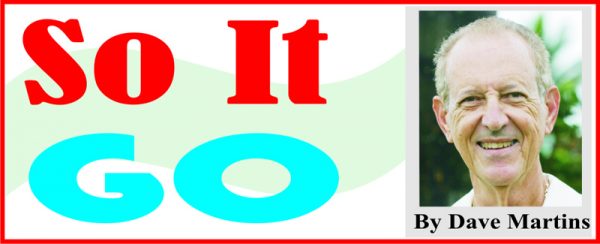
Perhaps intended to coincide with Indian Arrival Day the feature drew a host of comments applauding the performance but also pointing to it as a demonstration of the diversities in our culture.
In a way, that episode caused one to reflect on the irony involved in that we have, on the one hand, the call for us in the political arena here in recent times, coming from many quarters, regarding the urgent need for Guyana to bridge the racial division that gets frequent mention particularly now, as an election is on the horizon. Indeed, one is left to wonder why the connection triggered by the Lisa Punch recording is not front and centre daily in the lives of Guyanese and the obvious answer is that political purposes will often cross over into matters of everyday living and mitigate, or even eliminate, them in a society. We see this happening starkly right now in Trump’s America where the white supremacists are again in the news beating the drums of “those other folks”, particularly striking in a nation that often holds up itself as an example of the so-called “salad bowl” mix of society with all ingredients having important value.
One would have thought that the array of textures in the population making up Guyana would be seen as one of our strengths and therefore something to be treasured and protected rather than something producing opposing factions. Living in the largely immigrant society of Canada as a young musician in the 1960s, I was struck by the oft proclaimed “multicultural society” label during the Trudeau years and, from that epigram, to see that we had similarly diverse ingredients in the place where I was born. Living in Guyana, it may have been there somewhere in the back of my mind; settled into bustling Toronto and looking around brought it to the front.
We are blessed to have that mix of ingredients making up what we are as Guyanese as they spin out across this culture. To walk the streets of Georgetown is to see European, Indian and African dress as a natural part of the landscape; no one takes photographs of it, or even notices any disparity; it is an accepted condition; it is Guyana. A similar variety exists in our places of worship, in the music we listen to and play, in our restaurants and entertainment events, and in the very listing of names in our telephone book or on our voters’ lists. At Christmas time, we have full-fledged masquerade bands on the road, that’s Guyana. Similarly, for Diwali and Phagwah – an Indian tradition now accepted as part of our culture. Readers I am sure will provide their own examples of these disparate strains, born in other lands that are now an integral part of the Guyanese fabric, and, by their very diversity adding great worth to who we are.
Perhaps I am prejudiced to offer music as the arena where our diversity is the most immediately seen, after all, the thing is coming into your home or your motor car or your entertainment event, as naturally as breeze blowing through a window. No one stops to ask, “what is that?”. Lisa Punch’s Indian recording is part of the fabric. As is the latest soca or dancehall tune. As is the Amerindian pepperpot and the Portuguese garlic pork, and the Chinese chowmein. Feel free to tell me of their origin but then listen when I tell you they are now part of Guyanese culture as naturally as one foot follows another walking forward.
Guyana is a blend and thank God for that. We have drawn from these diverse strains – thank our ancestors for them – and they are who we are. The question of “who will rule” will rise up to cloud over that issue every time an election looms, but we are our own worst enemy when we then seek to stratify ourselves into groups based purely on ethnicity. When we move in that direction, we are rending our cultural fabric into five or six diverse strains and clearly weakening the whole in the process. The negation or rejection of “the other” has powerful emotional appeal – it is mankind in the pre-historic caves – but we should be focusing instead on the value that diversity brings and on seeking to keep the whole together. When we permit political interests to divide us for election votes we are not seeing the wider picture. Diversity is not our nemesis; it is our strength. We are a formidable blend.




